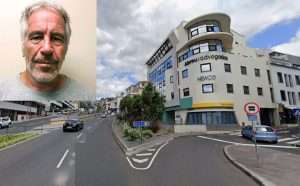The General Court of the European Union (CJEU) has rejected appeals by four companies involved in illegal state aid in the Madeira Free Trade Zone (ZFM), determined by Brussels, supporting the European Commission in its decision of its incompatibility with EU rules.
According to a statement from the court, this court dismissed the allegations of the companies Portumo – Montagem e Manutenção de Tubaria; Ponticelli — Technical Consulting; Ponticelli Angoil – Serviços para a Indústria Petrolífera and Nova Ship Invest, Unipessoal Lda, all based in Funchal, which applied to that court for the annulment of the decision of the Community executive declaring the aid scheme in the Madeira Free Trade Zone regarding tax benefits to be incompatible with the internal market.
The appellant companies consider that the Portuguese authorities “correctly applied regime III” of the ZFM and that the European Commission “made errors of law in considering that, in the context of the implementation of that regime, the Portuguese authorities did not correctly apply, the requirement relating to the origin of the profits to which the reduction of CIT applies and, the requirement relating to the creation or maintenance of jobs in the Autonomous Region of Madeira, both introduced by Regime II.”
The appellant companies also consider that the European Commission “erred in law in concluding that the Portuguese authorities did not carry out adequate and effective tax controls to verify that the beneficiaries met these two requirements.”
On the contrary, the General Court of the European Union considers that “the Commission did not err” in concluding that “Regime III, as applied, as regards the requirement relating to the origin of the profits to which the CIT reduction was applied, was contrary to the 2007 and 2013 decisions.”
It also “did not err” in “interpreting that, according to this requirement, the IRC reductions provided for in Regime III can only have as their object the profits resulting from activities ‘effectively and materially carried out in Madeira'” and in “declaring that Regime III, as applied, violated the requirement of creating and maintaining jobs” in the autonomous region.
The Court of Justice had already dismissed several of Portugal’s State aid actions in the MFA, including those of the Portuguese State and the Autonomous Region of Madeira, which brought the case before the Court of Justice of the European Union.
In July, the Court of Justice denied the appeal filed by the Portuguese State, considering “partially inadmissible and partially unfounded, all of Portugal’s allegations.”
Scheme III of regional aid was created to attract investment and create jobs in Madeira.
In order to ensure that the aid scheme would overcome the structural disadvantages of companies in those regions, the Commission’s approval decisions expressly required that the aid be granted to companies generating economic activity and effective jobs in the region of Madeira itself.
In 2018, Brussels initiated a formal investigation procedure into Regime III of State aid to the ZFM because it had doubts about the application of tax exemptions on income from activities actually and materially carried out in Madeira and the link between the amount of the aid and the creation or maintenance of effective jobs in the region.
In 2020, it declared the aid scheme incompatible with the internal market because it had been unlawfully implemented by Portugal, requiring the immediate and effective recovery of the aid from the beneficiaries, as well as the revocation of the scheme and the cancellation of all outstanding payments relating to aid. Furthermore, they imposed on Portugal a deadline of eight months to ensure the implementation of the decision.
According to an opinion by the Court of Auditors on the General State Account (CGE) for 2023, released in October, the value of settlements already remitted by the tax authorities to companies in the Madeira Free Trade Zone (ZFM) identified as having received illegal State aid amounts to 525 million euros, but of this total, only 66 million has been repaid.
Samantha Gannon
info at madeira-weekly.co
Views: 0








